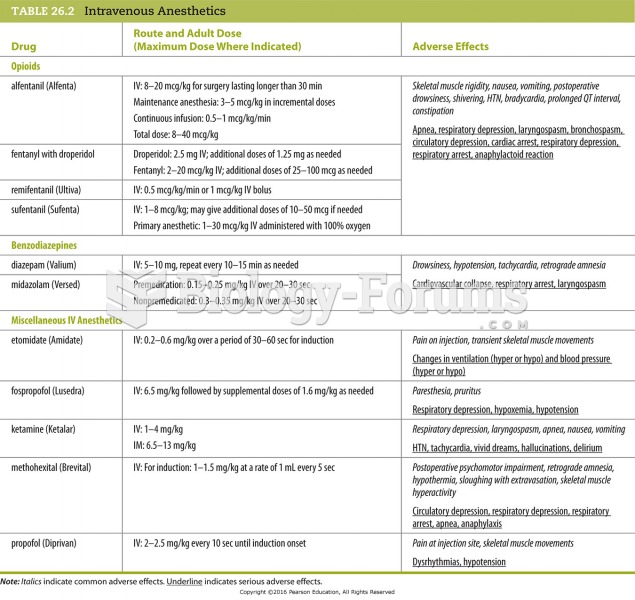|
|
|
Although not all of the following muscle groups are commonly used, intramuscular injections may be given into the abdominals, biceps, calves, deltoids, gluteals, laterals, pectorals, quadriceps, trapezoids, and triceps.
Elderly adults are at greatest risk of stroke and myocardial infarction and have the most to gain from prophylaxis. Patients ages 60 to 80 years with blood pressures above 160/90 mm Hg should benefit from antihypertensive treatment.
There are major differences in the metabolism of morphine and the illegal drug heroin. Morphine mostly produces its CNS effects through m-receptors, and at k- and d-receptors. Heroin has a slight affinity for opiate receptors. Most of its actions are due to metabolism to active metabolites (6-acetylmorphine, morphine, and morphine-6-glucuronide).
Nearly 31 million adults in America have a total cholesterol level that is more than 240 mg per dL.
Studies show that systolic blood pressure can be significantly lowered by taking statins. In fact, the higher the patient's baseline blood pressure, the greater the effect of statins on his or her blood pressure.
 Peripheral veins used in intravenous therapy; A, forearm; B, dorsum of the hand; C, dorsal plexus of
Peripheral veins used in intravenous therapy; A, forearm; B, dorsum of the hand; C, dorsal plexus of
 Injecting an IV push (bolus) medication; C, another type of needleless syringe and needleless IV acc
Injecting an IV push (bolus) medication; C, another type of needleless syringe and needleless IV acc





